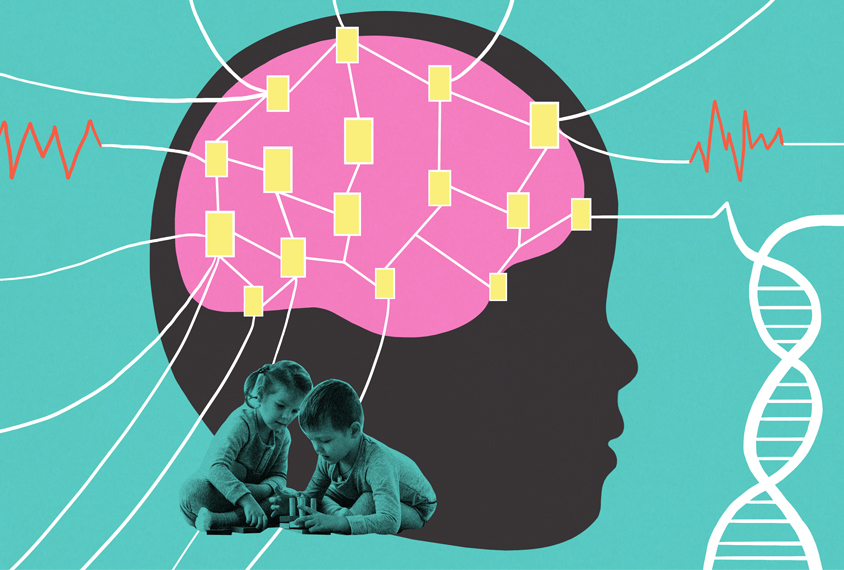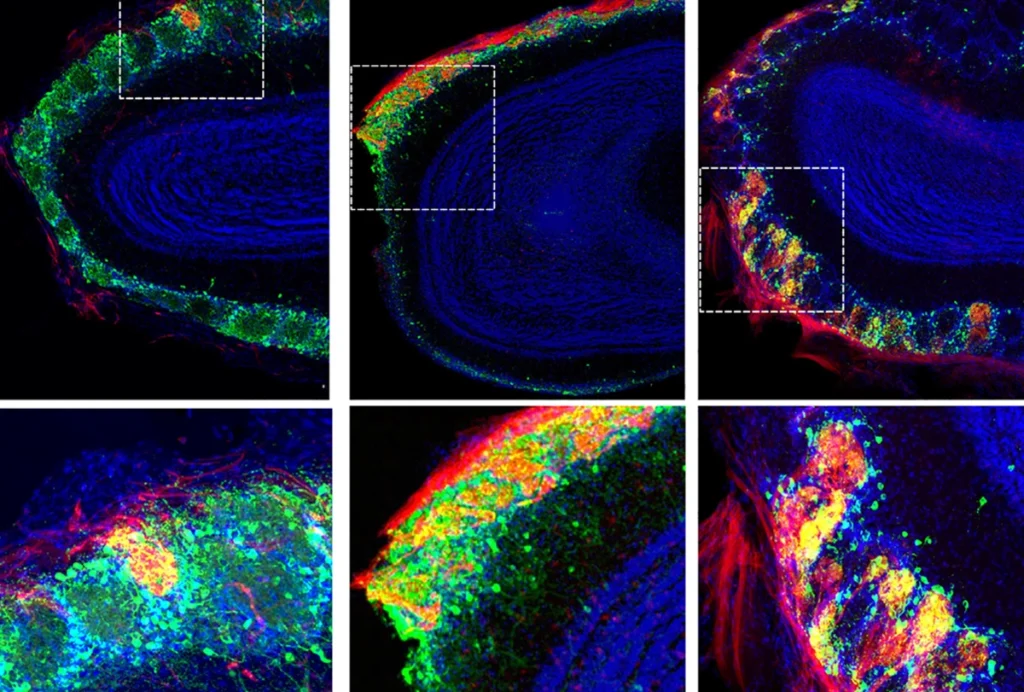Emily Jones is professor of translational neurodevelopment at the Centre for Brain and Cognitive Development at Birkbeck, University of London in the United Kingdom. Her research efforts center on the neurodevelopmental pathways that lead to autism. She is involved with a number of early-intervention studies for infants with siblings with autism and attention deficit hyperactivity disorder.

Emily Jones
Professor
Birkbeck, University of London
From this contributor
Connecting autism-linked genetic variation to infant social behavior
Integrating genetic analyses into studies of babies’ brain development could help us understand how autism-related genes contribute to autism traits.

Connecting autism-linked genetic variation to infant social behavior
Explore more from The Transmitter
Rat neurons thrive in a mouse brain world, testing ‘nature versus nurture’
Neurons from the two rodents can wire up together to form functional circuits—all while maintaining some species-specific properties, two new studies show.

Rat neurons thrive in a mouse brain world, testing ‘nature versus nurture’
Neurons from the two rodents can wire up together to form functional circuits—all while maintaining some species-specific properties, two new studies show.
It’s past time to stop using the Reading the Mind in the Eyes Test
The widely used measure of “theory of mind” needs to be re-examined, along with the long-standing claim that autism is linked to a lack of this ability.

It’s past time to stop using the Reading the Mind in the Eyes Test
The widely used measure of “theory of mind” needs to be re-examined, along with the long-standing claim that autism is linked to a lack of this ability.
Robots boost data consistency in rodent studies reliant on mechanical, optogenetic stimulation
Two new devices take experimenter variation out of the equation, the lead investigators say.
Robots boost data consistency in rodent studies reliant on mechanical, optogenetic stimulation
Two new devices take experimenter variation out of the equation, the lead investigators say.